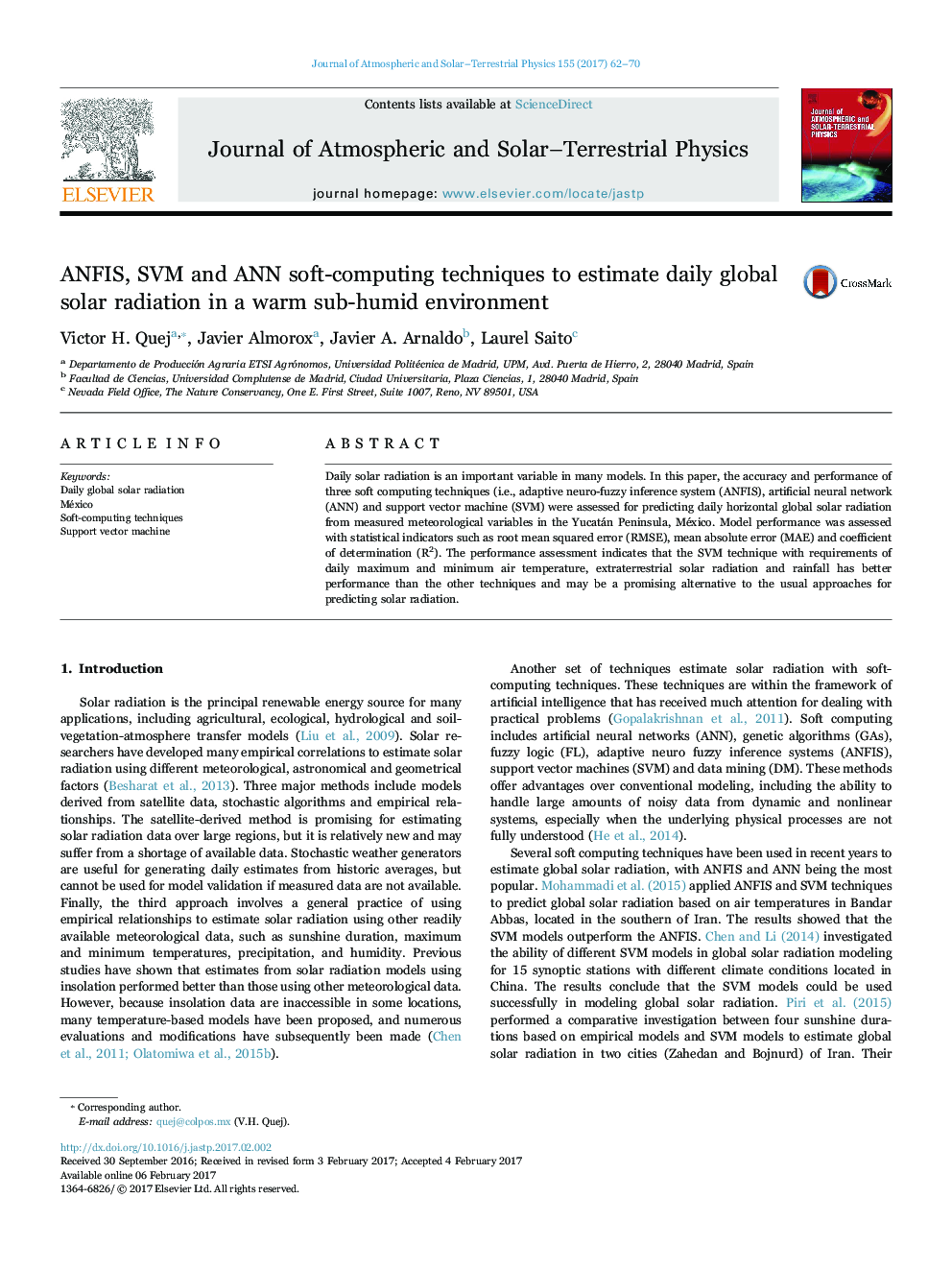| Article ID | Journal | Published Year | Pages | File Type |
|---|---|---|---|---|
| 5487531 | Journal of Atmospheric and Solar-Terrestrial Physics | 2017 | 9 Pages |
â¢We tested 3 techniques to predict daily global solar radiation in Yucatán, México.â¢SVM, ANN and ANFIS techniques for solar radiation prediction are described.â¢The SVM technique estimates global solar radiation well in warm sub-humid regions.
Daily solar radiation is an important variable in many models. In this paper, the accuracy and performance of three soft computing techniques (i.e., adaptive neuro-fuzzy inference system (ANFIS), artificial neural network (ANN) and support vector machine (SVM) were assessed for predicting daily horizontal global solar radiation from measured meteorological variables in the Yucatán Peninsula, México. Model performance was assessed with statistical indicators such as root mean squared error (RMSE), mean absolute error (MAE) and coefficient of determination (R2). The performance assessment indicates that the SVM technique with requirements of daily maximum and minimum air temperature, extraterrestrial solar radiation and rainfall has better performance than the other techniques and may be a promising alternative to the usual approaches for predicting solar radiation.
